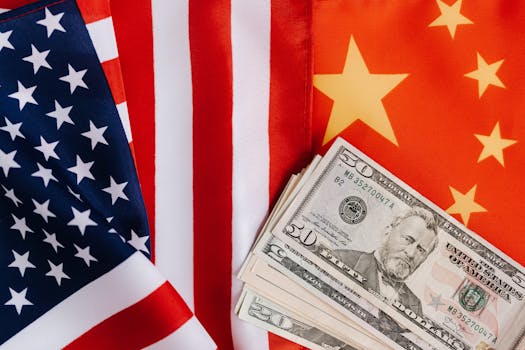
India Urges Swift Conclusion of US, EU Trade Talks: Boosting Exports and Economic Growth
The Indian government is pushing for a rapid conclusion to ongoing trade pact negotiations with the United States and the European Union, emphasizing the critical role these agreements will play in boosting exports, fostering economic growth, and strengthening India's global trade relationships. The urgency stems from the significant potential benefits these pacts offer, including enhanced market access for Indian businesses and a considerable injection of foreign investment. This proactive approach underscores India's commitment to integrating further into the global economy and solidifying its position as a major player in international trade.
Accelerating India's Economic Growth through Trade Deals
India's export sector is a vital engine for economic growth, providing employment for millions and generating significant revenue for the national treasury. However, challenges such as high tariffs and non-tariff barriers in key markets continue to hinder the sector's full potential. The proposed trade agreements with the US and EU are seen as critical steps towards overcoming these hurdles. A successful conclusion would significantly improve market access for Indian products in two of the world's largest economies, creating substantial new opportunities for businesses across various sectors.
Key Benefits of the US-India Trade Deal:
- Reduced Tariffs: A key focus of the negotiations is reducing or eliminating tariffs on a wide range of Indian exports to the US, including textiles, pharmaceuticals, agricultural products, and IT services. This would make Indian goods more competitive in the US market, leading to increased exports and revenue.
- Improved Market Access: The agreement aims to streamline regulatory processes and address non-tariff barriers, making it easier for Indian businesses to operate in the US market. This includes addressing issues related to sanitary and phytosanitary regulations, intellectual property rights, and digital trade.
- Boosting Investment: The deal is expected to attract greater foreign direct investment (FDI) into India from US companies, creating jobs and boosting economic growth.
Key Benefits of the EU-India Trade Agreement:
- Enhanced Market Access for Indian Goods: The agreement promises to substantially increase market access for Indian goods in the EU, potentially unlocking a vast market for Indian exporters. This covers diverse sectors, from pharmaceuticals and textiles to automobiles and agricultural products.
- Reduced Trade Barriers: Similar to the US deal, this agreement aims to reduce or eliminate tariffs and non-tariff barriers, simplifying trade and encouraging greater economic cooperation between India and the EU.
- Strengthening Bilateral Relations: The deal will strengthen bilateral political and economic relations between India and the EU, fostering greater cooperation on various fronts.
Addressing Concerns and Navigating Challenges
While the potential benefits are considerable, the negotiations are not without their challenges. Both the US and EU agreements involve complex negotiations involving various stakeholders and competing interests. Some key challenges include:
- Tariff Reductions and Market Access: Reaching a mutually agreeable compromise on tariff reductions for specific goods remains a critical hurdle. Negotiations require balancing the interests of domestic industries with the need to expand market access for exporters.
- Regulatory Harmonization: Aligning regulations and standards between the trading partners is another key aspect requiring careful consideration. This includes addressing issues related to food safety, environmental protection, and intellectual property rights.
- Labor and Environmental Standards: Concerns regarding labor and environmental standards are likely to play a significant role in the negotiations. Ensuring that the agreements uphold high standards in these areas will be crucial to garner public support.
The Role of Bilateral Trade Agreements in Global Trade
The pursuit of trade agreements with the US and EU reflects a broader trend among nations to strengthen economic ties through bilateral and multilateral agreements. These agreements help to reduce trade barriers, promote economic growth, and foster closer political relationships. They play a vital role in shaping the global trading system and ensuring that it remains fair, open, and efficient. In the context of rising global uncertainty and protectionist tendencies, forging these strategic alliances becomes even more critical for countries seeking to secure their economic future.
Conclusion: A Pivotal Moment for India's Economic Future
The successful conclusion of trade agreements with the US and EU is a pivotal moment for India’s economic future. These deals present a significant opportunity to boost exports, attract foreign investment, create jobs, and propel India's growth trajectory. While navigating the complexities of the negotiations remains crucial, the potential rewards make a swift and favorable resolution a high priority for the Indian government. The ongoing talks will closely be observed by global investors and economists, with their success or failure holding substantial implications for India's standing in the global economy and its integration into the wider international trade system. The focus on swift conclusion underlines the Indian government's commitment to achieving a win-win scenario that benefits all stakeholders involved, ultimately contributing to sustained economic prosperity. The current negotiations highlight the increasing importance of bilateral trade agreements in a rapidly evolving global landscape, and their potential to shape economic futures for decades to come.



















